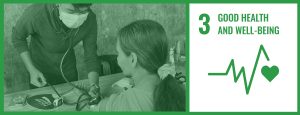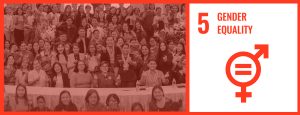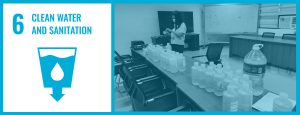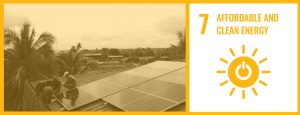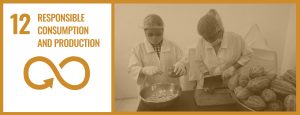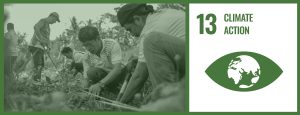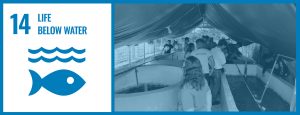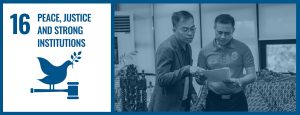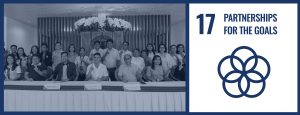2024 Reports | SDG 14 – Life Below Water

Isabela State University (ISU) demonstrates its unwavering dedication to SDG 14 Life Below Water through comprehensive education, proactive conservation efforts, and impactful research. By integrating sustainable practices in teaching, research, and community engagement, ISU continues to lead in developing environmentally responsible technologies and nurturing a culture of care for aquatic ecosystems — ensuring that life below water thrives for future generations.
SUPPORTING AQUATIC ECOSYSTEMS THROUGH EDUCATION
The University, through the Institute of Fisheries, offers the Bachelor of Science in Fisheries and Aquatic Sciences degree program. The program aims to use fish resources in a way that doesn’t harm the environment, promote new fish farming methods, and take care of water ecosystems. Through the BS Fisheries and Aquatic Sciences educational program, the University is committed to providing competent fisheries graduates and professionals who can contribute to sustainable and responsible fisheries and aquaculture, which could contribute to the conservation and sustainable usage of the freshwater and marine resources.
The Institute of Fisheries incorporates aquatic ecosystem conservation and sustainable fisheries management into its curricular and extension programs. Faculty members conduct lectures, seminars, and training sessions that promote awareness on the impacts of overfishing, destructive fishing practices, and pollution on aquatic biodiversity. Educational outreach initiatives, such as community information drives and school-based awareness campaigns, are conducted to encourage responsible stewardship of water resources among local fishers, students, and residents.
SUPPORTING AQUATIC ECOSYSTEMS THROUGH ACTION
Isabela State University (ISU) takes proactive measures to protect aquatic environments through conservation-oriented projects and extension services. The Institute of Fisheries has implemented community-based initiatives such as river clean-up drives, mangrove planting activities, and aquaculture livelihood training programs that integrate sustainable practices.
The university also upholds a Sustainable Food Sourcing Policy, ensuring that materials used in research and campus operations are responsibly obtained and environmentally friendly. These efforts reflect the institution’s active role in minimizing ecological damage while supporting local communities that rely on aquatic resources.
RESEARCH AND ENGAGEMENT FOR BIODIVERSITY MAINTENANCE
Research serves as the cornerstone of ISU’s contribution to SDG 14. Several studies directly address issues of aquatic ecosystem preservation, pollution assessment, and sustainable aquaculture systems:
- “Assessment of Heavy Metals in Water, Sediments, and Aquatic Organisms (Marbled Limpet and Nerite Snail) from Dinapigue River” – This study provides scientific evidence on the levels of heavy metal contamination in freshwater environments, offering crucial insights for environmental management and pollution mitigation.
- “Correlation of Productivity of Pangasius (Pangasianodon hypophthalmus) and Lettuce (Lactuca sativa) in Raft Aquaponic System and Its Water Quality” – This research promotes integrated aquaculture-hydroponic systems that optimize water use while maintaining environmental sustainability.
These research outputs not only expand scientific understanding but also guide policymakers and practitioners toward adopting technologies and practices that reduce environmental impacts in aquaculture and fisheries.
INSTITUTIONAL POLICIES ON ENVIRONMENTAL CONSERVATION
The university’s institutional policies ensure that all research, extension, and operational activities adhere to principles of environmental conservation. Policies are reviewed periodically to align with national and global sustainability frameworks. This policy-driven approach strengthens ISU’s role as an educational and research institution that advocates for ecological balance and the protection of aquatic biodiversity.
ISU’s COMMITMENT TO SDG 14
In support of the United Nations Sustainable Development Goal 14, Life Below Water, Isabela State University reaffirms its commitment to the protection, restoration, and sustainable use of aquatic ecosystems through education, research, and community engagement. The University, through its Institute of Fisheries and research centers, actively contributes to environmental sustainability and the responsible use of marine and freshwater resources.




